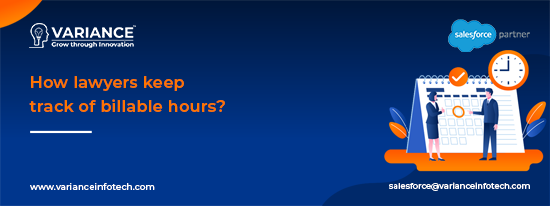
Accurate billable hour tracking is the lifeblood of a profitable law firm. It ensures fair compensation for lawyers’ work, creates transparency with clients, and adds to the overall profit of the practice. But how specifically do lawyers track their billable time? This post will explore the best ways in which lawyers can track their time legally, along with suggestions on how to leverage billable hours and other tips for keeping accurate records.
Understanding the Importance of Accurate Billable Hour Tracking:
Billable hours, also known as law firm billing or legal time tracking, are the hours spent by lawyers on client work that can be billed to the client.
Here’s why accurate billable hour tracking is crucial:
- Fair Compensation: Guarantees that lawyers are compensated for their efforts and experience.
- Client Transparency: Fosters trust by giving clients a transparent view of fees.
- Profitability: Allows law firms to monitor their financial health and pinpoint areas needing improvement.
- Time Management: Provides a glimpse of how lawyers are utilizing their time, enabling better time management.
- Law Practice Management: Aids in expedited practice management by enabling data-driven decision-making.
The Best Billable Time Tracking Techniques for Attorneys:
Lawyers can use some different methods to keep track of billable hours:
- Legal Timekeeping Tools: These industry-specific digital platforms provide services such as automated time logging, project management tools, and integration with billing systems.
- Billable Hour Software/Legal Billing Software: Specializes in the creation and management of invoices with built-in time tracking capabilities.
- Mobile Time Tracking Apps for Lawyers: Track your time from anywhere with convenient mobile apps.
- Manual Time Tracking for Attorneys: Some lawyers use traditional methods to track their hours, such as paper timesheets or spreadsheets, although this technique is less efficient.
Strategies to Maximize Billable Hours and Minimize Leakage:
At the risk of interrupting our helpful suggestions and informative advice, let us pause a moment here and take an opportunity for some foundational reforms regarding collecting fees.
- Greater Law Firm Profits: Select only high-value clients and manage non-billable time to maximize firm efficiency.
- Drive Down Non-Billable Time: Employ time tracking data to see where non-billables can be driven down. This may mean simplifying administrative roles or tweaking some workflows.
- Automate Time Tracking: On top of legal time tracking software that automates tasks like logging in a billable hour, this helps to not only reduce and/or eliminate manual labour but also lower the risk for inaccuracies.
- Lawyers and Time Management: Lawyers can use time management strategies to improve their overall efficiency by having clear goals, making tasks a priority, and identifying the best times to sit down for real work.
This is How Technology Facilitates Billable Hour Tracking:
- Legal Time Tracking Apps: The most effective method using technology to streamline billable hour tracking is through legal time trackers. This application enables lawyers to log their billable hours anytime, anywhere.
- Cloud-Based Time Tracking: For more accessible data access and synchronization across devices, offering better flexibility when it comes to time tracking within the firm.
- Legal Practice Management Software: Many legal practice management software solutions include time tracking as part of their suite, which also includes other essential features like case management, document editing, and billing tools.
- Billing and Invoicing Software: Automates billing/invoices by creating them based on the billable hours tracked.
- Seamless Time Tracking Integration: Time tracking feeds into most other systems you work with, including practice management software and billing, so your overall legal ecosphere can be managed from one platform.
How to Keep Time Records (Accurate and Ethical Billable Hour Record Keeping):
Accurate billable hour records are important. Best practices for ensuring compliance and enforceability include:
- Develop Clear Guidelines: Create unambiguous criteria, outlined in written documents, for which time counts as “billable” for the firm. Document clear guidelines on categories that are considered billable.
- Proper Use of Time Tracking for Legal Ethics: Follow ethical billing practices as outlined by the local bar association.
- Client Communication about Billable Hours: Communicate clearly with clients upfront about billing rates and the types of activities considered billable.
- Keep Track Of What Bills: Document billable time with the date, hours spent, a brief description of the activity, and the associated client or case.
- Preventing Time-Tracking Mistakes: Train lawyers for timely billing and implement measures to ensure timekeeping errors, such as overstatement of hours or double billings, do not happen.
By implementing these effective billable hour tracking methods, a law firm can ensure adequate pay-off, build credibility with clients, and derive maximum profitability.
Do You Need more information?
For any further information / query regarding Technology, please email us at info@varianceinfotech.in
OR call us on +1 630 534 0223 / +91-7016851729, Alternately you can request for information by filling up Contact Us
 Please wait...
Please wait...
Leave a Reply